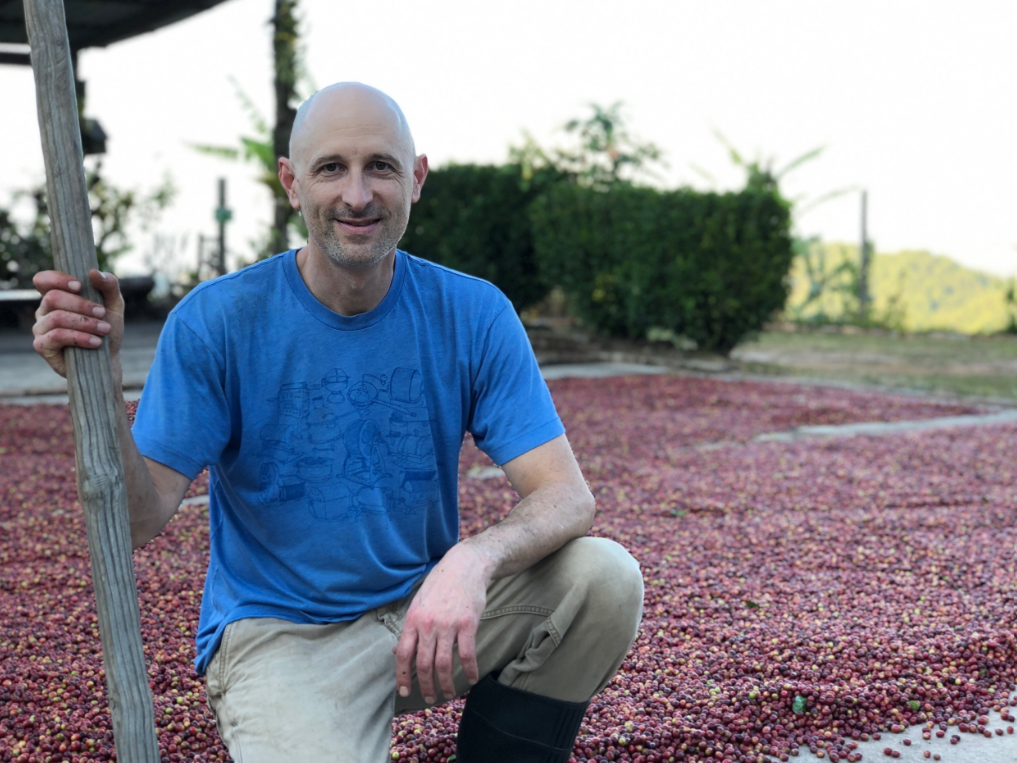
Q&A with Jason Pearl from Roasted Pearl
Tell me how you learned about Mission Lazarus. When did you first visit the farm?
I have run our missions program at the KoP Church of Christ since 2003. We had sent teams to Mexico for many years. In 2010, the partner we were working with informed us it was too dangerous and he would no longer be hosting teams. He was a one man show building churches in Mexico. So, I was tasked to find another mission partner. This took some time and a lot of prayer, and we were most certainly directed by the Holy Spirit. I had heard about JB. Found a number for him, got in touch and talked about the mission’s approach, work being done, etc. So we decided to send a team in 2011. Mission Lazarus sounded too good to be true.
How long have you been in the coffee business? What made you start your own coffee roasting?
I started roasting coffee in 2011, right after my first trip to Mission Lazarus. I had been reading about home roasting for months leading up to our first trip. I had no idea of the San Lazaro farm. When we arrived at the Posada and drank the coffee I was blown away! I asked about the beans and was informed that the coffee is grown "over there", pointing across the valley to the farm and Mission Lazarus ran the farm. Light bulbs went off in my head and I mentioned I've been curious about roasting and asked if I could bring some green home. I took 5 lbs home and roasted them in my garage later that summer. I was hooked! Nothing better than freshly roasted coffee.

What is your favorite part about working with San Lazaro Coffee?
By far it's the impact that farm has on those living on and around that mountain - the workers being paid fairly and treated with dignity and respect, and the fact that San Lazaro has the guts to hire a female farm manager and a fully female staff. I know that is shocking for all those other farms on the mountain. There is a seismic ripple effect that has in the region. The Portillo Grande church is a prime example. That church didn't exist when we first started working around the farm. That church appeared because of what was happening on the farm. Praise God!
I also love seeing how San Lazaro has evolved over the years. Early on... all the coffee was mixed and processed together (no Caturra and Catimor). The process wasn't up to specialty grade, and there were lots of things that hurt quality. But every year, something would be improved upon: processing, moisture testing, grain pro bags inside the burlap, how the shade trees are maintained, fertilizer, the list goes on and on.
You have been such an incredible resource for us when it comes to getting our roasting techniques and temperatures right in Honduras. Can you tell us about your experience working with Nohelia, Lillian, and the team?
Oh man... that’s a topic I could spend days on! Nohelia and Lillian and so dear to me. I nearly cry just thinking about those two. I learned through failure! Keep roasting, trying, failing and adjusting until you find what works. I just took that and shared it with Nohelia and Lillian. Both of them are so humble, eager to learn, kind, funny and love coffee! So, it's really just about spending time at the machine. Roast, sample and roast again. My time with them has been precious. I've been blessed to have the opportunity to spend days with them at the roaster. It’s crazy that I still can't speak Spanish, but we make it work. Lillian is SO funny, strong and kind. Nohelia is the same way. She came into her role so quickly and without any farm or roasting knowledge ahead of time. She's worked so hard to be a great manager!
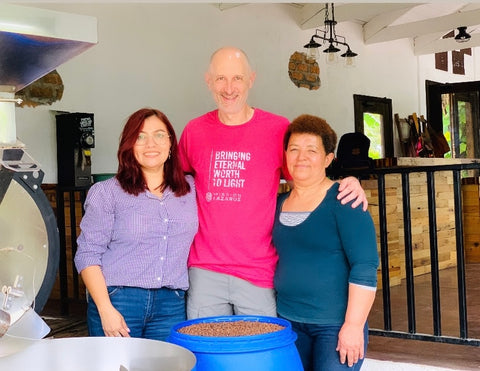
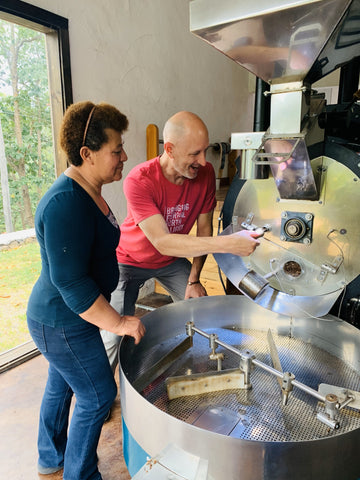
Why do you think it's important to buy from farms like San Lazaro?
We are called to be responsible with all we've been blessed with. Everything. So if we're already spending a small fortune on coffee every day, let's be responsible to support farms that do it ALL right. You CAN have beautiful, specialty grade coffee AND treat workers, the land, and your neighbors fairly.
What's one story of impact that comes to mind when you think about the work being done at our farm (or farms like ours)?
Can I share two? A fair salary has built homes for Rosa and Carmen. They have been able to support their family because of a fair wage. It's not just enough to get a meal for the day. So much more than that... that fair wage also means some of these ladies do not have to rely on some no good man that might be abusive or a cheater. Sorry to word it that way but it opens doors for these ladies.
The other story is truly one that blows my mind. One of the years I came during harvest and got to pick and work for a few days on the farm, we were told the rainy season was weak and production might be very low. When a worker is paid by the bucket, that is a HUGE deal and could have a devastating impact. One of the workers informed us that San Lazaro had told them they would be paid a salary that year vs by the bucket. Unbelievable! And it turns out not only is that generous and kind, it helps produce a better cup of coffee. If you aren't worried about filling a bucket, you can focus on picking only the ripe and best cherry. The product is better.
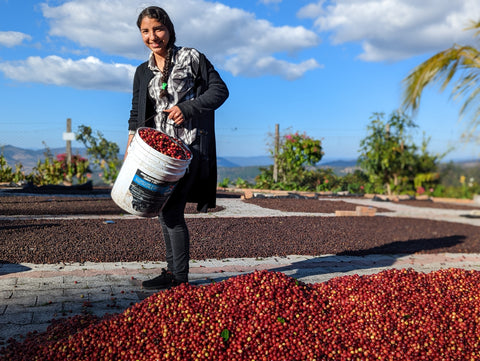
What's the best part of roasting coffee?
I always have a fresh bag of beans! Haha... What I really enjoy is the fact that I'm helping in some small way to unlock all these flavor notes that God has jammed into this tiny bean. Read this from my site and you'll know what I mean: The Amazing Bean
Tell us about your work with The Beekeeper's Cafe and Pickering Coffee House.
For one, they are both just like the farm. Female run!
As far as roasting, I'm roasting all the espresso for both shops. I'm using 100% Catimor for their espresso. A single origin as an espresso is unusual but it's good! I also provide beans for their drip coffee. I use Caturra for that. There are also interesting back stories for both shops. The owner of Pickering, Megan, I've known for 20+ years. She opened a home furnishing store years ago. She knew about San Lazaro and asked to sell some bags in her store as a way to support the work. Carmel, the owner of Beekeeper's Cafe, bought some bags and learned about the farm. Two and half years ago, Carmel wanted to open a cafe and asked if I would be willing to roast San Lazaro for her. We prayed over it, and roasted and tried a TON of coffee before finding that Catimor would work as an espresso. Megan then decided to open Pickering and asked the same thing. We already had the roast down and she's all in with supporting the farm. It's only been a couple of months for Pickering but it's going really well.
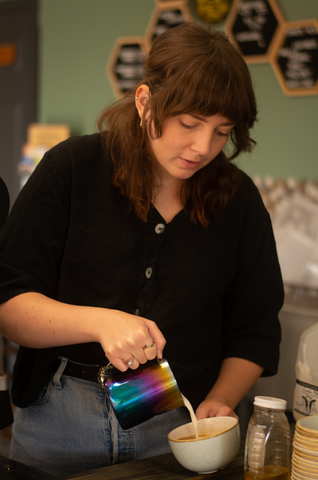
Carmel, the owner of The Beekeeper’s Cafe, pouring a latte in Pottstown, PA
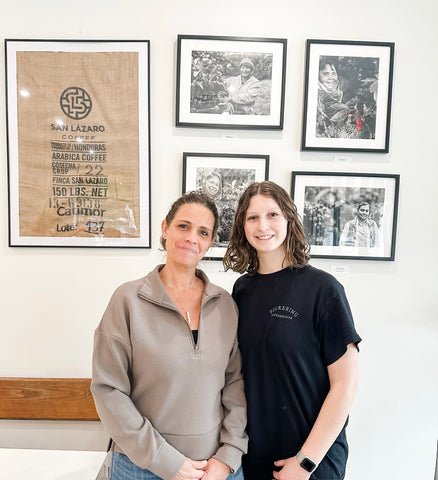
Mother/daughter team Megan and Maddie, posing with San Lazaro Coffee farmers on the wall at Pickering Coffeehouse in Phoenixville, PA
Tell us your favorite coffee drink!
A chemex pour over, Catimor light-medium roast.
Jason, we can't thank you enough for all you have done and continue to do to support the farm. If you could leave our readers with one final thought, what would it be?
I want to encourage us all to slow down, be more intentional and connect in a deeper way. My “coffee roots” are sitting on the sofa in the morning talking with my parents, sharing and connecting with them.
When you want (need) a cup of coffee, be intentional about it. If you go to a cafe, find one like Beekeeper’s or Pickering. They look beyond the price point and work with a farm that makes a difference. If you brew at home, slow down, support a good farm, put the phone down and talk with someone or just take those few minutes to enjoy that brew and reflect on the day ahead.
Leave a comment
Also in San Lázaro Coffee Blog

From Waiting to Thriving
In the small village of Jayacayan, where job opportunities are scarce and most women are expected to stay at home, Nancy Mondragón has learned that hope can be planted like a seed. At 28 years old, she lives with her husband, their little girl, and her in-laws in a modest home where every bit of income matters.
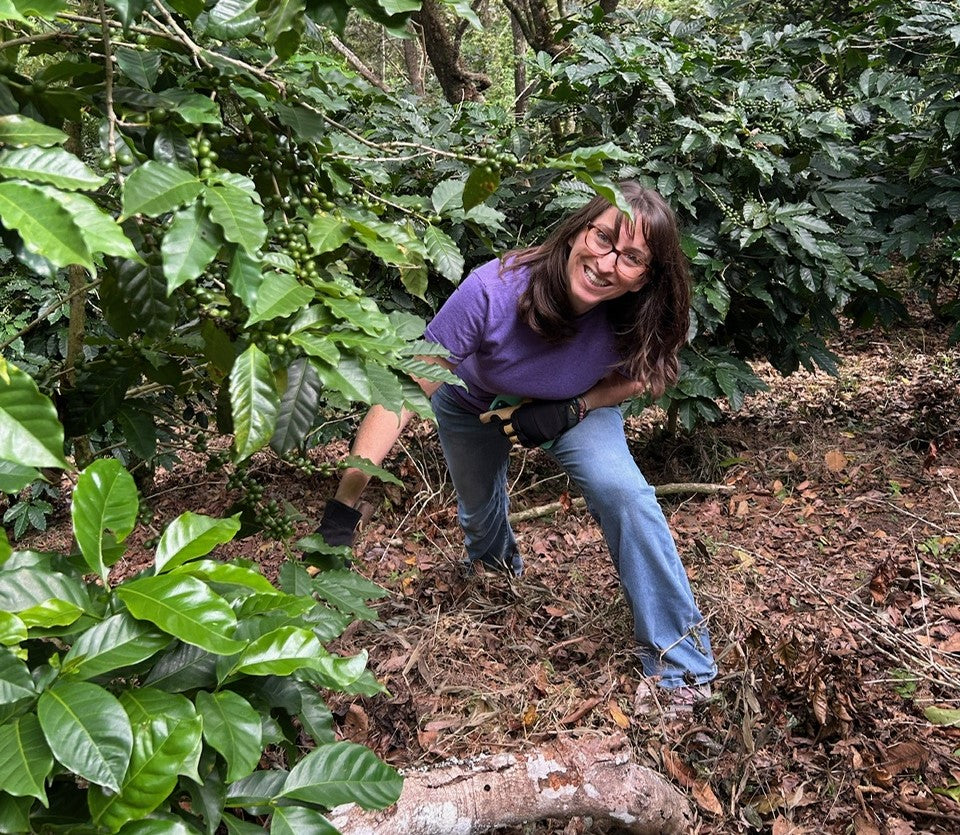
Rebecca's Day on the Farm Confirms What Makes Us Different
I recently had the privilege of traveling to Honduras with a group from my church. One morning, we volunteered on the San Lázaro coffee farm. It was only three or four hours—hardly a full day—but those hours changed how I’ll look at my morning coffee forever.
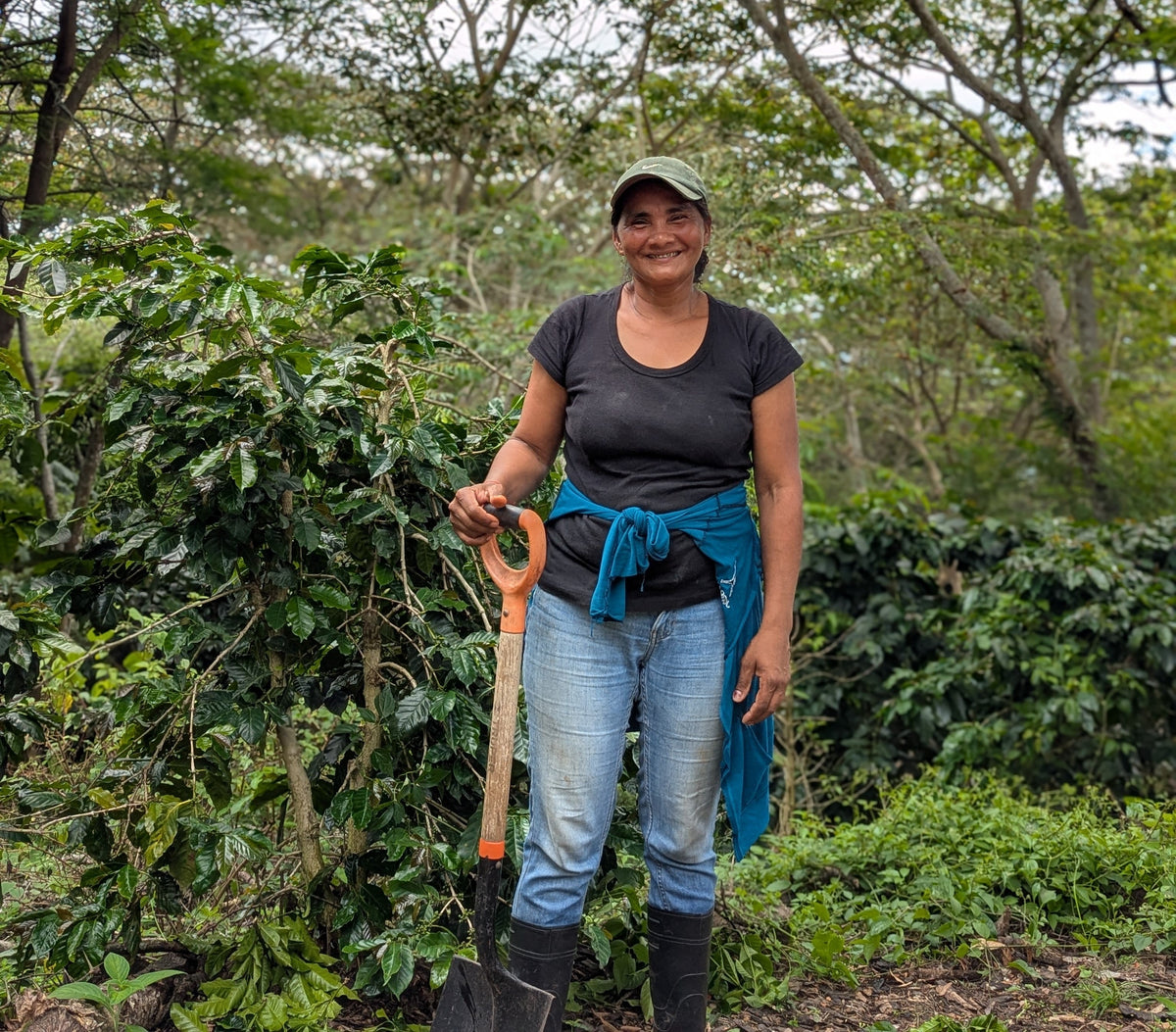
The Courage of Starting Over
When life gave Sandra Hernández every reason to give up, she chose something else: courage. She didn’t wait for a rescue. She didn’t ask for pity. When hardship shattered the life she knew, she took her youngest daughter by the hand, left everything behind, and decided to begin again — trusting that Christ would walk with her every step of the way.
